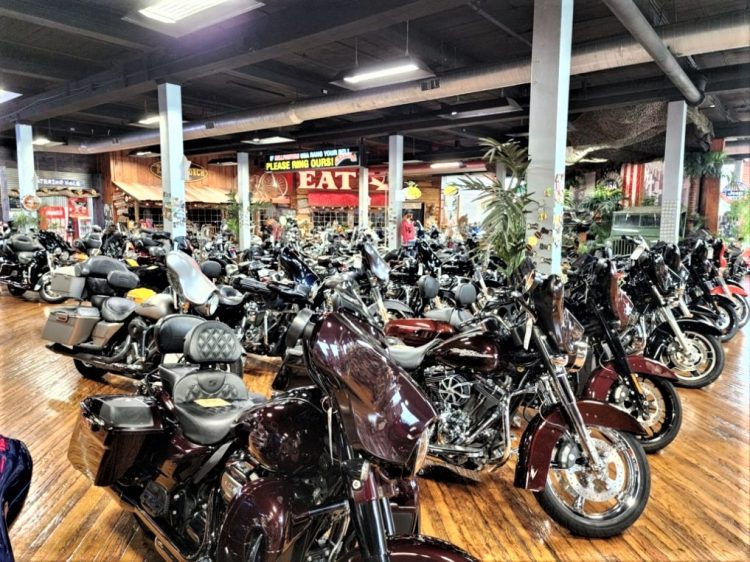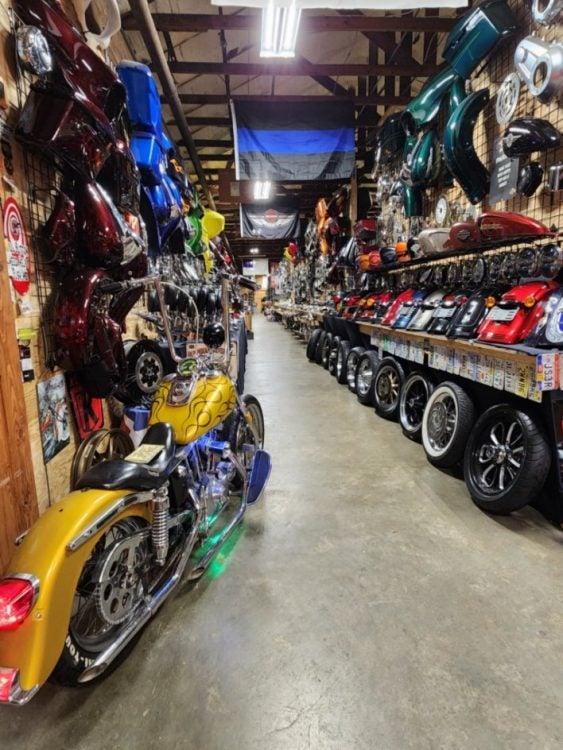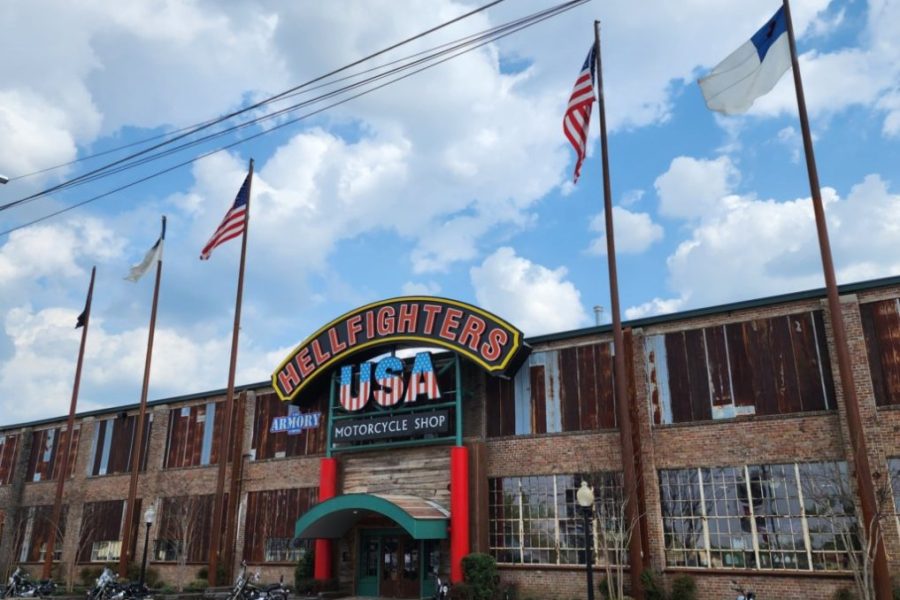We recently told you about the acquisition of Tucker Powersports by Turn 14 Distribution. While corporate acquisitions occur daily in the business world, for some motorcycle enthusiasts, this one felt like a blow to the faithful.
That’s becauseTurn 14 Distributionis not known for its distribution of motorcycling paraphernalia. According to a Turn 14 Distribution press release, the company is one of the largestautomotiveaftermarket distributors in the US. They do not have a history of distributing motorcycle merchandise.
Acquisition nays
The fact that they don’t have experience with the motorcycle industry caused some motorcyclists to flinch and even lament the acquisition. Several comments to our article were clear that the acquisition would mean bad news for motorcyclists:


Acquisition yays
But others thought that the move could be a good thing:


But no matter on which side of the issue you find yourself, automotive companies buying into motorcycle companies is apparently a trend.
Auto dealerships acquiring moto and powersports dealers
A recent motorcycle industry article pointed out that a new trend is shaping up. The trend is auto dealers purchasing motorcycle/powersports dealers. The author pointed out that auto dealers who sell only cars and SUVs have realized that they may be missing a huge profit opportunity. And as a result, they have been turning to motorcycle and powersports dealerships to help boost their profits.
According to Dave Cantin, the Executive Chairman and CEO of the Dave Cantin Group, the automotive and motorcycle/powersports segments are being boosted by recent trends resulting in solid margins. So to maintain this strong growth, the larger automotive groups are looking outside their traditional auto dealerships and into other powered vehicle sectors, with motorcycle and powersports dealers being a primary focus.

Motorcycles on the Hellfighters showroom floor. Photo: Mike Botan
For example
Recent motorcycle and powersports dealership acquisitions support Cantin’s point. One significant example is theEd Morse Automotive Group. It is a big hitter in the motorcycle and powersports dealership acquisition game and an even larger hitter in the automobile dealership game. To date, the group has over 2,000 employees at 43 dealerships, 80 franchises, and 30 automotive and motorcycle brands.
Recently, the Morse Group acquired one of the nation’s premier Harley-Davidson motorcycle dealerships, Bruce Rossmeyer’s Daytona (Florida) Harley-Davidson. In addition, the group also recently acquired Grand Junction Harley-Davidson and Grand Junction Powersports, both in Colorado.
Some of the acquisitions come with multi-line moto and powersports brands. For example, the acquisition of Grand Junction Powersports brings new and preowned BMW Motorrad and KTM motorcycles, GasGas, Timbersled, Intense, and Royal Enfield brands to Grand Junction’s surrounding area.

The expansive used parts area at Hellfighters. Photo: Mike Botan
But why?
当然,利润是大多数生意的动机是什么s, but are there other reasons an automotive dealership would want to acquire a motorcycle or powersports dealership? According to Cantin, powersports dealerships are an excellent way to diversify an auto dealer’s business and provide the ability to offer more than a new car to a customer who they have already built a trusted relationship with.
In addition, Cantin says there are far more similarities than differences between auto and motorcycle/powersports dealerships. He says both have to sell and service their products, market directly to consumers, build brand loyalty, report to their OEMs and be responsible for specific key performance indicators.
Integrating Auto and Moto/Powersports dealerships
Once an auto dealership acquires a moto/powersports one, how does the new owner integrate the newly acquired dealership into its range of dealerships? Should they make personnel changes, change the existing dealership culture, or even change the dealership name?
Once again, according to Cantin, the best way to go is to not make big changes unless necessary. He suggests that typically, the best strategy is not to move people around or change cultures unless there are already existing problems with one or both areas. Making significant changes in those areas can lead to changing an already good culture or cause good people to move out. Ultimately, Cantin thinks most acquirers look to add resources to existing teams and fill gaps.
Does it work?
While acquiring motorcycle and powersports dealerships may help boost an auto dealership’s revenue and profitability, do auto dealers understand the ins and outs of the motorcycle industry? Can they connect with or retain the relationships of the motorcycle and powersports dealers they acquired?
From my perspective, most auto dealerships are looking first to maximize their profits (as almost all businesses try to do). But unfortunately, quality and customer service often take second place in ensuring they reach their bottom line numbers.
Auto dealerships, for the most part, have notoriously poor reputations. And while I’m not suggesting that there aren’t any motorcycle dealerships with bad reputations, I still have a gut feeling that they have a better connection to their customer base.
Some motorcycle dealerships’ likeHellfighters in Laurel, Mississippi (LINK),maintain a vision to help those in need more than make profit dollars. Hellfighters is a very unusual example, and I don’t mean to suggest that most motorcycle dealerships are like them, but there they are.
My opinion
And you may wonder how I draw this conclusion, and that’s fair. My viewpoint comes from several times when I was traveling far from home and had a mechanical issue that I could not take care of while on the road. In at least three instances, the dealerships had fully booked service schedules and either fit me in during the day or stayed past closing in an attempt to get me to my destination for the evening.
So if you were to ask me whether auto dealerships acquiring moto dealerships is a good thing, I would give you the following answer. It depends.
It depends on whether the acquisition saved the dealership from closing or gave it the financial boost to improve its capabilities. But if all things are equal, I’d prefer that the auto dealerships stick to selling autos and leave the selling of motos and powersports vehicles to existing dedicated dealerships.
What do you think? Let us know in the comments below.







